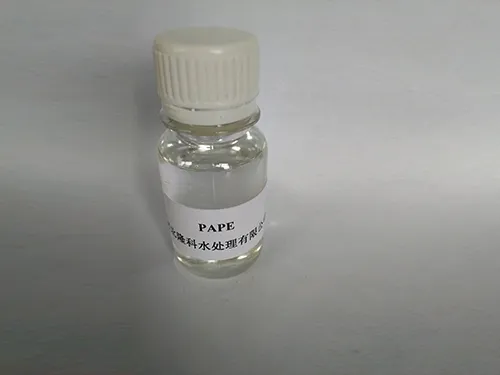The Power of Scale and Corrosion Inhibitors in Water Systems
Industrial water systems face significant challenges from scale and corrosion, which can reduce efficiency, damage equipment, and lead to costly repairs. Scale and corrosion inhibitors play a vital role in protecting these systems, ensuring optimal performance and longevity. Through effective inhibitor water treatment, industries can prevent the buildup of scale and the damaging effects of corrosion. Understanding the mechanisms behind these inhibitors and their applications is essential for achieving consistent and reliable water system operation.

Understanding Scale and Corrosion Inhibitor Chemicals
Scale and corrosion inhibitor chemicals are essential in water treatment processes. These chemicals work by forming a protective layer over metal surfaces, preventing scale deposits and corrosion from impacting equipment performance. Hydroxyphosphonoacetic acid, for example, is widely used due to its strong chelating properties, which prevent the formation of insoluble salts and scale deposits.
The ability of polyhydric alcohol phosphate ester compounds to control both corrosion and scale is particularly valuable. These compounds offer protection against both types of deterioration, ensuring that systems remain free of harmful buildup and operational disruptions. Their ability to bind with metal ions and prevent scaling while also offering corrosion protection makes them ideal for a variety of industrial applications.
Key Applications of Hydroxyphosphonoacetic Acid in Water Systems
Hydroxyphosphonoacetic acid is a powerful organic acid used extensively in water treatment processes. It is highly effective at preventing the precipitation of calcium and magnesium salts, which are common causes of scaling in water systems. The ability of hydroxyphosphonoacetic acid to sequester metal ions helps maintain optimal heat transfer, preventing blockages and overheating in systems such as boilers and heat exchangers.
Its use as a scale and corrosion inhibitor is particularly useful in industries such as power generation, HVAC systems, and water desalination. By minimizing scaling and corrosion, this chemical ensures that systems operate efficiently over extended periods, reducing energy consumption and operating costs.
Enhancing Efficiency with Polyhydric Alcohol Phosphate Ester
The application of polyhydric alcohol phosphate ester offers both corrosion and scale inhibition, making it a versatile solution for water treatment. These compounds are capable of forming a protective barrier over metal surfaces, ensuring resistance against both aggressive water chemistry and mechanical wear. Whether used in cooling towers, boilers, or wastewater treatment systems, polyhydric alcohol phosphate ester enhances system efficiency by preventing scale buildup and corrosion.
By improving heat exchange efficiency and reducing maintenance requirements, these inhibitors contribute to the overall sustainability and cost-effectiveness of water systems. They allow industries to maintain optimal performance even under challenging water conditions.
Preventing Scale Buildup with Scale and Corrosion Inhibitor Chemicals
Scale buildup is one of the most common issues in water systems, leading to reduced efficiency, higher energy consumption, and increased wear and tear on equipment. The application of scale and corrosion inhibitor chemicals helps to prevent this buildup by controlling the precipitation of calcium, magnesium, and other minerals. These inhibitors work by sequestering these minerals, preventing them from forming scale deposits.
In industries that rely heavily on water systems, such as oil and gas, power generation, and chemical manufacturing, the use of effective inhibitors is crucial. By preventing scale buildup, these chemicals ensure the longevity and efficiency of systems, minimizing downtime and maintenance costs.
The use of scale and corrosion inhibitors is essential for maintaining the health and efficiency of water systems in a wide range of industries. Whether through the application of hydroxyphosphonoacetic acid, polyhydric alcohol phosphate ester, or other powerful chemicals, water treatment solutions must be tailored to the specific needs of each industry. By incorporating the right inhibitor water treatment strategies, industries can significantly reduce costs associated with equipment repairs, downtime, and energy consumption. The key to long-term efficiency and sustainability lies in the effective management of scale and corrosion, ensuring that systems remain operational and optimized under even the most challenging conditions.
-
Understanding Polycarboxylic Acids: Properties, Applications, and Future PotentialNewsJul.28,2025
-
Scale Inhibitor Explained: How to Protect Your System from Limescale and Hard Water DamageNewsJul.28,2025
-
Scale and Corrosion Inhibitors: Essential Chemicals for Industrial Water System ProtectionNewsJul.28,2025
-
Polyaspartic Acid: A Biodegradable Polymer for Sustainable ChemistryNewsJul.28,2025
-
Isothiazolinones: A Versatile Antimicrobial Class with Industrial Power and Regulatory ChallengesNewsJul.28,2025
-
A Deep Dive into 2-Phosphonobutane-1,2,4-Tricarboxylic Acid (PBTC)NewsJul.28,2025





